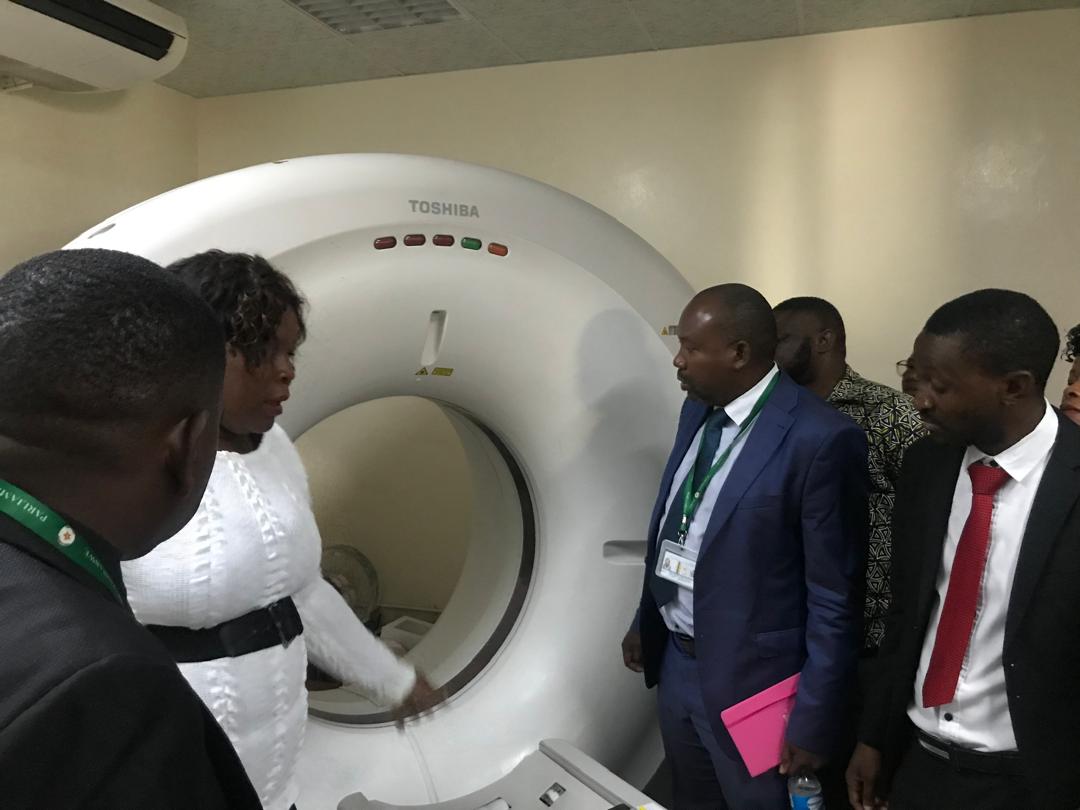Bulawayo’s Mpilo Central Hospital lacks functioning life-saving radiation treatment for cancer patients, with the last treatment occurring in 2021.
Inoperable radiotherapy machines and a lack of a service contract are at the heart of the crisis.
The situation is further compounded by a shortage of local expertise and an unreliable power supply.
Since the breakdown of the radiotherapy and mammography machines, Mpilo has witnessed a significant exodus of radiographers, leaving only two remaining.
Without proper power management, the machines cannot function. A recent quotation from South African engineers, totalling 1.1 million rand, was sent to the Ministry of Health and Child Care for review three weeks ago.
In 2021, Mpilo installed a US$100,000 Uninterrupted Power Supply (UPS) system for the radiotherapy unit.
However, according to the hospital’s Chief Medical Officer (CMO) Dr Narcisius Dzvanga, engineers claim the current UPS is too powerful for the machines.
Adding to the woes, the CT scan has been out of service since October 2023 due to a software issue requiring German engineers. Local attempts to resolve the problem have been unsuccessful.
During a tour of the radiotherapy department by the Parliamentary Committee on Health and Child Care on Monday, Clinical Director Professor Solwayo Ngwenya confirmed that the last time Mpilo performed radiation treatment was in 2021.
“These machines are expensive,” he said, highlighting their US$1.5 million price tag. “They can’t simply be discarded.”
He added that the Ministry is aware of the situation.
“The machines stopped working three years ago, in 2021. As acting CMO, I wrote a letter to the Ministry. They are aware,” he emphasised.
Oncologist Dr.Tatenda Chingozoh explained the machines’ sensitivity to power fluctuations.
“Power surges damage these delicate machines,” she said. “Even minor faults prevent us from administering radiation treatment, which can be life-saving. Patients are forced to seek treatment at private facilities.”
The lack of a functioning CT scan further hinders treatment as it works in conjunction with the radiotherapy machines.
“Without the radiotherapy machines, the radiotherapy cannot use the CT scan as it works in conjunction with the machines. There are three CT scanners in the government system, one at the main Mpilo hospital, another UBH and then we have the oncology dedicated one.”
Dr Dzvanga reported that South African engineers inspected the machines and deemed them operational, with the UPS being the primary issue.
“The engineers can only service the machines once we replace the UPS,” he said. “They claim the current one is unnecessarily large, but we received it in that state. It’s not up to us to adjust it.”
An invoice for repairs was sent three weeks ago, following initial uncertainties about the extent of the damage. The engineers bypassed the UPS, tested the machines, and confirmed their functionality. The expected lifespan of a radiotherapy machine is 10 years.
Parliamentary committee members questioned why the hospital couldn’t switch to alternative power sources.
Operations Director Joe Charangwa clarified that regardless of the power source, it must be routed through the UPS to ensure consistent electricity.
“Even solar power requires a UPS to prevent surges,” he explained. “The UPS stabilises and protects the main machine, whether powered by ZESA or solar.”
With non-functional machines, the remaining staff are undergoing training to maintain their skills, Dr. Chingozoh revealed.
“We offer limited alternative treatments due to staff shortages caused by emigration,” she said. “Out of the eight radiographers we had when the machines were functional, only two remain.”
“We have a high staff turnover. Even our physicist is new. All the previous physicists left the country. We try to keep staff trained. Currently, our physicist is attending a course in Nigeria. Next week, there’s another training in Cape Town.”
Dr Chingozoh identified the lack of a service contract as a major shortcoming.
“These reputable companies require service plans for their machines,” she said. “It was our oversight, but I believe the Ministry is addressing it. These are modern machines used globally. We need a proper service and maintenance plan in place. The government is currently establishing a service contract to cover both Mpilo and Parirenyatwa hospitals.”
According to the Mpilo CMO, cancer patients are forced to seek treatment at the private Oncocare facility in Newlands, as Parirenyatwa Hospital faces similar challenges.

